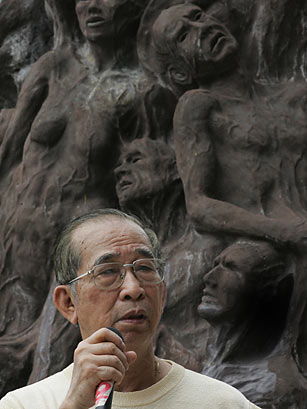
It's only in movies that you're supposed to come across grizzled old fighters on their deathbeds, devoting their last breaths to stirring incitements for freedom, then dramatically expiring to the whine of a flatlining electrocardiograph. But there is every reason to believe that, as local papers reported, Hong Kong democracy campaigner Szeto Wah really did die on Jan. 2, at 79, with a ringing demand for the vindication of China's Tiananmen Square protesters on his lips. It was the defining passion of his later years, and the tenacious Szeto was not the sort of man to squander words for poetic effect.
If he had an intuitive grasp of the issues at stake in Tiananmen Square in 1989, it's because he saw nothing contradictory in being both Chinese and a democrat. Being Hong Kong born, he was able to flourish outside the confines of mainland authoritarianism. An educator by profession, Szeto established one of Hong Kong's largest trade unions (the Professional Teachers Union), became a legislator and founded two political parties.
But his most transcendent role came in his 21-year leadership of the Alliance in Support of Patriotic Democratic Movements in China — a coalition of 200 community groups that has enshrined Hong Kong's vital status as the only place on Chinese soil where the Tiananmen Square crackdown is commemorated. Tens of thousands attend the vigils organized by the alliance each year, nourishing hopes shared by Chinese the world over that democracy will one day be established in China and the Tiananmen dead redeemed.
Such activities naturally made Szeto a pariah to Beijing, but some of his ashes will be scattered in the sea so that they float back toward China's mainland. It's the closest Szeto will get to the land he had been barred from since 1989 but which he never stopped loving.
This text originally appeared in the Jan. 17, 2011 issue of TIME magazine.